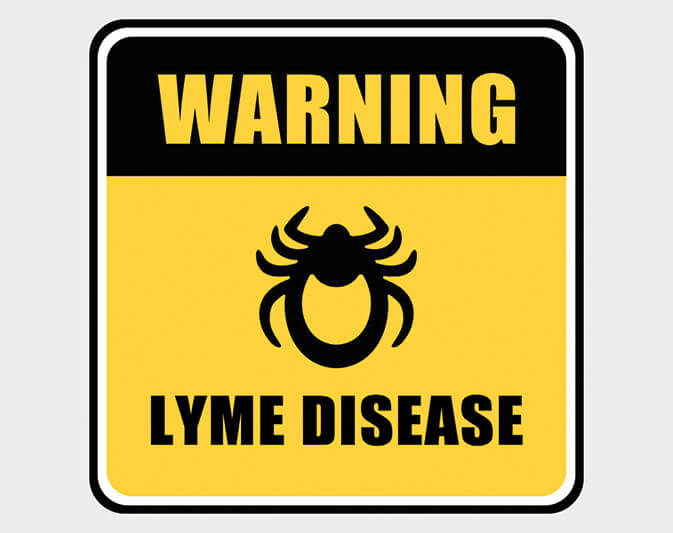Can I Get Social Security Disability for Lyme Disease in Chicago, IL?
If you are afflicted by Lyme disease, you know the battle to get well can be long and difficult. And if you are unable to work due to encephalitis, heart problems, shooting pains that interrupt sleep, or other debilitating symptoms or conditions caused by the disease, the battle for Social Security disability benefits can be long and difficult as well.
The bite of a deer tick can result in the bacterial infection that causes Lyme disease. While the disease affects people in many different ways, typically there are three stages of the infection. The first stage manifests itself with flu-like symptoms which include headaches, body aches, and an overall sick feeling. A few weeks or months after you have been bitten, the symptoms become more severe and may include encephalitis, joint or muscle pain, loss of muscle control in the face, dizziness, heart problems and other symptoms. In its third stage—which can begin months or even years after the initial tick bite—the disease often gets even worse. The functions of your joints, nerves, brain, eyes, and heart can be diminished by relentless chronic symptoms of the disease. Unfortunately, the list of potential medical problems caused by Lyme disease goes on. It can include short term memory loss, lack of concentration, vertigo, weakness in the legs, difficulty walking, bladder problems, and back pain. For more on the symptoms and treatment of Lyme disease, WholeHealth Chicago is an informative online resource, and has written articles about the effects of Lyme disease.
As you can imagine, many of those afflicted with Lyme disease and suffering through these debilitating symptoms are barely able to cope with the activities of daily life. For those whose disabling conditions interfere with their ability to work, there are two disability programs: Social Security Disability Insurance — known as SSDI, and Supplemental Security Income—commonly referred to as SSI. SSDI pays benefits to you and certain members of your family if you are disabled and you worked long enough, payingSocial Security taxes. SSI on the other hand is based on financial need and awarded to those with often no work history, a remote work history, or a work history without a contribution of Social Security taxes. The Social Security Administration says, “It is designed to help aged, blind, and disabled people, who have little or no income.”
There are two basic paths to qualifying for disability benefits. The first is to match the medical criteria in the “Blue Book,” the Social Security Administration’s (SSA) list of disabling conditions. If an individual’s symptoms match the requirements in the listings, they will likely qualify for disability payments. While there is not a Blue Book listing specifically for Lyme disease, you may still qualify for benefits if you can match the criteria in a listing which matches symptoms associated with the disease. Those who are suffering from advanced Lyme disease may find that one or more of these listings apply:
- Section 1.00 (Musculoskeletal System) – This section of the Blue Book could apply if you have significant mobility limitations when walking or using your arms.
- Section 4.00 (Cardiovascular System) – If you have suffered heart damage from Lyme disease.
- Section 12.00 (Mental Disorders) – If the disease has resulted in mental or cognitive issues.
- Section 14.09 (Inflammatory Arthritis) – If you have severe arthritis in the knees or other weight-bearing joints.
Very few people who apply for Social Security disability benefits meet the strict requirements of the Blue Book listings, but there is a second way to qualify—by proving that you are unable to perform any work due to your condition or conditions, including Lyme disease, given your age, education, and past work experience.
We advise you to always keep in mind that it is not the diagnosis of a disease or even the presence of a disease’s symptoms that qualifies you for disability benefits. It is far more important to conclusively demonstrate how much you are limited by your impairment, rather than to emphasize the diagnosis itself. The Social Security Administration will evaluate your “residual functional capacity” (RFC)—an assessment of what you can still do despite your medical impairments. (For more on RFCs, click here.) To qualify for benefits, you must demonstrate that your symptoms prevent you from sustaining full-time, competitive employment on a consistent and reliable basis. Your medical condition(s) must be expected to last and keep you out of work for at least 12 consecutive months. You will want to have as much documentation as possible regarding your symptoms and limitations – not just your diagnosis – to help provide the needed evidence for your case.
The road to winning Social Security disability benefits is long and can be tricky to navigate. Lyme disease cases can be particularly misunderstood, but at Nash Disability Law we have successfully fought for our clients. Statistics from the Government Accounting Office show that you are three times more likely to get the benefits you have rightfully earned if you are represented by an experienced disability attorney. If you are unable to work because of Lyme disease, call or email the Chicago Social Security Lawyers at Nash Disability Law today for a free consultation. (To learn the advantages of a local disability lawyer, click here.)


